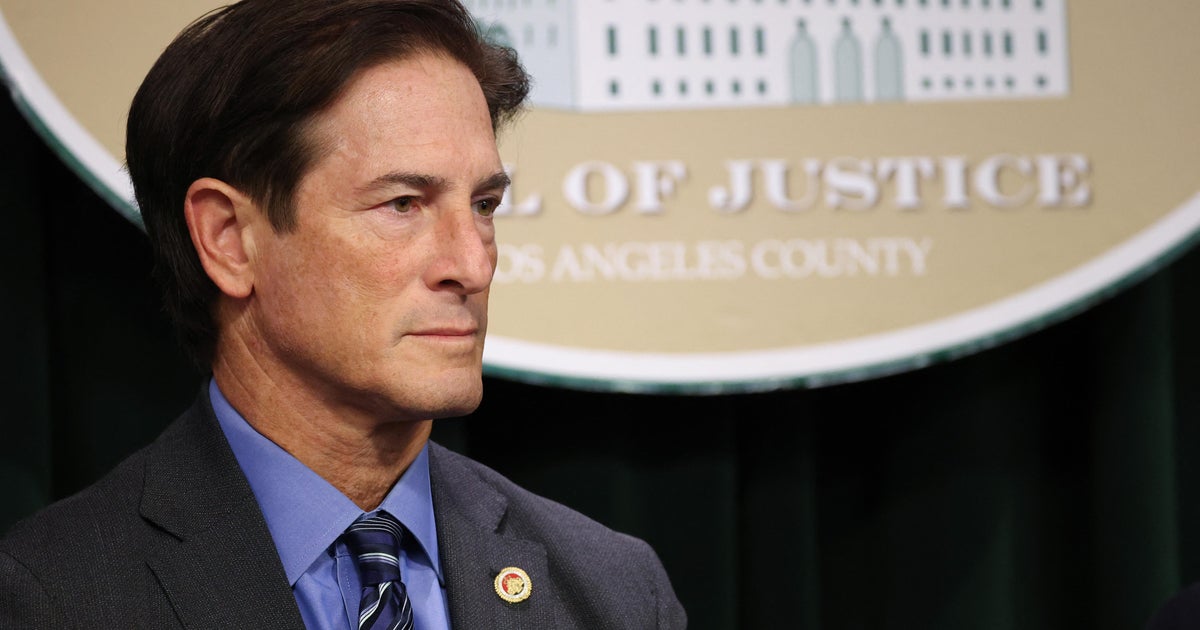Federal judge rejects Florida's trans treatment restrictions
TALLAHASSEE -- A federal judge on Tuesday ruled that a 2023 Florida law and regulations prohibiting the use of puberty blockers and hormone therapy to treat children for gender dysphoria and making it harder for trans adults to access care are unconstitutionally discriminatory and were motivated by "animus" toward transgender people.
U.S. District Judge Robert Hinkle barred state health officials from enforcing the law, which also carried heavy sanctions and potential jail time for doctors who violated the restrictions.
The law and rules, which were approved by state medical boards, also required signing lengthy informed-consent forms with warnings about the use of puberty blockers and hormones. Gov. Ron DeSantis and other Republican leaders championed the restrictions, as Florida and other GOP-led states in recent years have passed a series of measures aimed at transgender people.
Hinkle last year also issued a preliminary injunction in the class-action lawsuit filed by parents of two trans children and a transgender man. The state's appeal of the preliminary injunction is pending at the 11th U.S. Circuit Court of Appeals.
Tuesday's 101-page ruling said "gender identity is real" and likened opposition to transgender people to racism and misogyny.
"Transgender opponents are of course free to hold their beliefs. But they are not free to discriminate against transgender individuals just for being transgender. In time, discrimination against transgender individuals will diminish, just as racism and misogyny have diminished. To paraphrase a civil-rights advocate from an earlier time, the arc of the moral universe is long, but it bends toward justice," Hinkle wrote.
"In the meantime, the federal courts have a role to play in upholding the Constitution and laws. The state of Florida can regulate as needed but cannot flatly deny transgender individuals safe and effective medical treatment - treatment with medications routinely provided to others with the state's full approval so long as the purpose is not to support the patient's transgender identity," he continued.
Hinkle rejected a requirement that treatment for adults be done only by physicians and in person, blocked consent forms and blocked the ban on hormone therapy and puberty blockers for children.
A DeSantis spokeswoman said the governor's administration intends to appeal the decision.
"We disagree with the court's erroneous rulings on the law, on the facts, and on the science. As we've seen here in Florida, the United Kingdom, and across Europe, there is no quality evidence to support the chemical and physical mutilation of children. These procedures do permanent, life-altering damage to children, and history will look back on this fad in horror," spokeswoman Julia Friedland said in an email.
Florida, Friedland added, "will continue to fight to ensure children are not chemically or physically mutilated in the name of radical, new age 'gender ideology.'"
Hinkle's ruling found fault with similar language used by the governor and lawmakers, which the judge said illustrated the "animus" behind the policies.
"Perhaps all this talk about castration and mutilation is just political hyperbole. But it casts at least some doubt on the assertion that these decision makers' motivation was sound regulation of medical care in the best interest of transgender patients rather than outright disapproval of transgender identity," Hinkle wrote. "Any suggestion that animus of this kind did not motivate at least some legislators blinks reality."
The federal government defines gender dysphoria clinically as "significant distress that a person may feel when sex or gender assigned at birth is not the same as their identity."
In addition to banning puberty blockers and hormone therapy for minors with gender dysphoria, the law also allowed only physicians - not nurse practitioners - to approve hormone therapy and barred the use of telehealth for new prescriptions. Opponents of the restrictions maintained that the restrictions severely reduced access to hormone therapy for adults.
Parents who are plaintiffs in the lawsuit praised Hinkle's ruling, which came amid a number of conflicting decisions from courts throughout the country. Hinkle noted that the U.S. Supreme Court has yet to settle the issues.
"This ruling lifts a huge weight and worry from me and my family, knowing I can keep getting Gavin the care he needs and he can keep being the big-hearted, smiling kid he is now. I'm so grateful the court saw how this law prevented parents like me from taking care of our children," a plaintiff identified as Gloria Goe said in a prepared statement.
Some of the highest-profile debates about trans issues in Florida and other states have centered on banning treatments for transgender minors. Florida contends that such treatments are unproven and risky - despite support for the treatments from major medical organizations.
Hinkle said the "overwhelming weight of medical authority supports treatment of transgender patients with" hormone agonists and cross-sex hormones when appropriate.
"The defendants say, in effect, that the organizations were dominated by individuals who pursued good politics, not good medicine. If ever a pot called a kettle black, it is here. The statute and the rules were an exercise in politics, not good medicine," the judge wrote.
Hinkle's order acknowledged that the issue is "politically fraught."
"There has long been, and still is, substantial bigotry directed at transgender individuals. Common experience confirms this, as do some of the comments of legislators. ... And even when not based on bigotry, there are those who incorrectly but sincerely believe that gender identity is not real but instead just a choice. This is ... the elephant in the room," he added.
The judge's ruling also found that consent forms that include numerous warnings about treatment, required to be signed by children and their parents and adult patients, ignore "extensive clinical experience showing excellent results" from treatment.
"The challenged statute and rules ignore the benefits that many patients realize from these treatments and the substantial risk posed by foregoing the treatments - the risk from failing to pursue what is, for many, the most effective available treatment of gender dysphoria," Hinkle wrote.
Risks are inherent in "many kinds of medical treatment," Hinkle added.
"What is remarkable about the challenged statute and rules is not that they address medical treatments with both risks and benefits but that they arrogate to the state the right to make the decision - and to do it based in significant part on animus against the patients. Worse, the statute and rules make the same decision for everybody, without considering any patient's individual circumstances," he wrote. "If these treatments are prohibited, many patients will suffer needlessly."
Hinkle also repeatedly questioned state policymakers' decisions about the restrictions.
"The patients' motivation is the desire to achieve the best possible medical treatment. The parents' motivation is love for their children and the desire to achieve the best possible medical treatment for them. This was not the motivation of many of those involved in adoption of this statute and these rules," the judge wrote.







